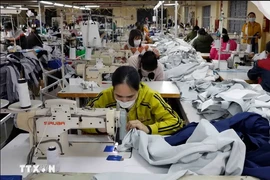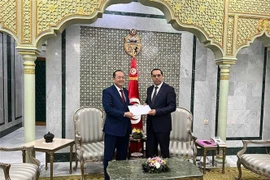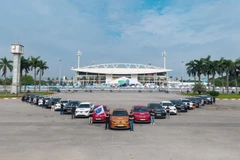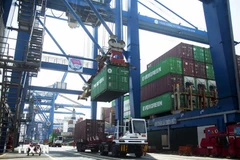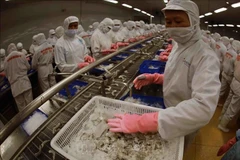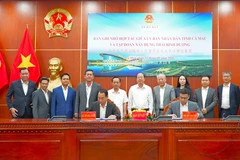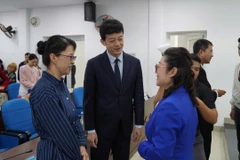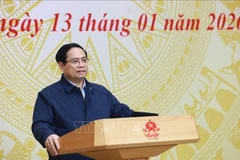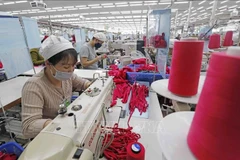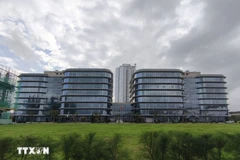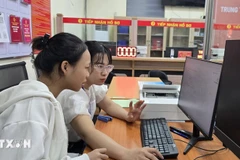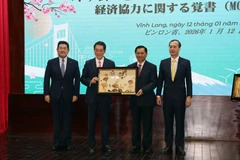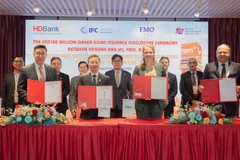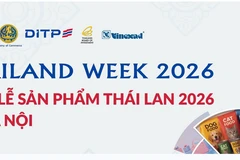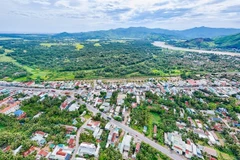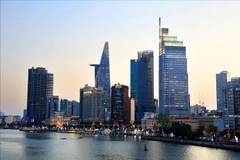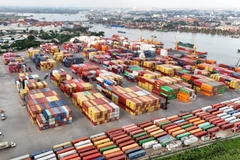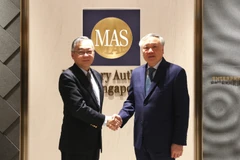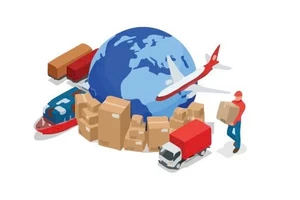Hanoi (VNA) – Sixty representatives from ministries, sectors, and businesses of Vietnam and Tunisia recently took part in an online trade conference aimed at connecting enterprises and advancing bilateral economic and trade cooperation.
Addressing the April 24 event, Mohamed Koolie, Vice President of the Tunisian Union of Industry, Trade and Handicrafts (UTICA), highlighted the promising potential for collaboration between the two nations. He stressed that the event provided a valuable platform for business networking and proposed holding at least two trade conferences annually.
With a population of around 12.5 million and a strategic position close to Europe, Tunisia is regarded as a vibrant, internationally integrated economy within the Africa-Arab region. Its active participation in various free trade agreements, particularly the African Continental Free Trade Area (AfCFTA), makes Tunisia an important gateway for Vietnamese goods to enter the North African and Arab markets.
In 2024, two-way trade reached 267 million USD, almost tripling the figure recorded in 2023. Vietnam’s main exports to Tunisia included footwear, raw coffee, pepper, cashew nuts, seafood, and machinery, while Vietnam imported seafood, dates, chemicals, and animal feed materials from Tunisia.
Tunisia’s demand for imported goods remains high, especially for essential commodities such as raw coffee, rice, and sugar. Since 2024, Tunisian legislation has allowed private enterprises to import these items, opening new market opportunities for foreign suppliers, including Vietnamese businesses.
During the conference, the Vietnam Trade Office provided an overview of Vietnam’s economic and trade environment and outlined its export-import policies. It also introduced key upcoming trade events, including the Vietnam International Sourcing Expo, Vietnam Food Expo, and Vietnam Expo 2025, inviting Tunisian firms to attend to explore partnership opportunities.
Over the years, Vietnam and Tunisia have signed a range of important agreements, including the Trade Agreement (1994), the Agreement on Economic, Cultural, and Scientific-Technical Cooperation (1999), the Framework Agreement on Agricultural Cooperation (2002), and the Agreement on Double Tax Avoidance and Tax Evasion Prevention (2010). These accords have built a strong legal foundation for promoting bilateral trade and investment. The two sides have also convened three sessions of the Intergovernmental Committee, the latest of which took place in Tunis in 2018.
Expressing his admiration for Vietnam’s impressive trade turnover of 786.29 billion USD in 2024, Mohamed Koolie encouraged businesses from both countries to explore each other’s strengths to foster mutually beneficial cooperation. He invited Vietnamese firms to consider investment and joint ventures in Tunisia, particularly in processing industries, new technologies, and marine aquaculture, taking advantage of Tunisia’s strategic location, rich resources, modern infrastructure, skilled workforce, and access to regional markets.
Nonetheless, Tunisian businesses pointed out several challenges, including rising prices of Vietnamese exports, higher shipping costs due to Middle East conflicts, business trust issues, and high Vietnamese import tariffs on certain goods such as dates. Several participants suggested that the two governments negotiate to reduce tariffs, pursue a bilateral preferential trade agreement, and establish a Vietnam–Tunisia Business Council to promote practical, sustainable cooperation.
On this occasion, the Vietnam Trade Office organised a catalogue and sample exhibition showcasing Vietnamese products and introduced Vietnamese coffee to Tunisian partners. Several Tunisian enterprises found potential partners for the import of coffee, rice, powdered milk, mechanical products, and consumer goods, while also seeking opportunities to export dates, olive oil, and seafood to the Vietnamese market.
Both sides agreed to continue strengthening collaboration through trade promotion activities, business delegation exchanges, marketing of national strengths and potential, supporting enterprise participation in international fairs and exhibitions, and providing consultation and assistance in addressing emerging trade disputes./.
